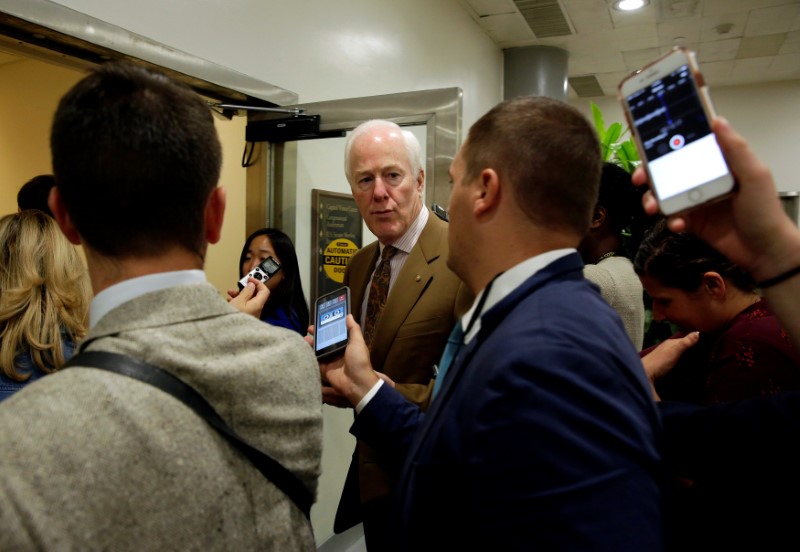By Diane Bartz
WASHINGTON (Reuters) - A Republican senator leading the charge on updating little-known investment rules designed to protect national security said that he will soon introduce a bill aimed at reining in potentially dangerous deals done by China.
Senator John Cornyn, a member of the Republican leadership who is on the Senate Intelligence Committee, told the Council on Foreign Relations on Thursday that he was concerned by China's attempts to ensure that its military catches up to the U.S. Defense Department in terms of technology.
"China is using every tool at its disposal to close the technology gap between the United States and that country, and in the process, to eliminate our military's technological advantage," he said in his speech. Cornyn's office provided Reuters with a copy of the address on Monday.
To combat this, Cornyn plans to introduce a bill in Congress that would update the Committee on Foreign Investment in the United States, or CFIUS, an interagency panel led by the Treasury Department that reviews proposed transactions to ensure they do not pose a challenge to national security.
The law firm Covington and Burling LLP, which follows CFIUS, said in a note after the speech that it believed that Cornyn's proposed legislation "may ultimately become law."
"Senator Cornyn is among the most influential members of the Senate, and there appears to be an emerging bipartisan consensus that CFIUS should be strengthened," the firm said in an analysis on Friday.
Cornyn said the legislation would be called the Foreign Investment Risk Review Modernization Act, and would ensure that CFIUS focuses its investigations on countries which pose the biggest threat to the United States.
It would also give CFIUS the authority to look at a broader range of deals, including joint ventures based outside the United States and smaller, minority-position investments which would give the investing companies access to sensitive information, Cornyn said.
Cornyn's office did not respond to a query on Monday regarding when the bill would be introduced.
CFIUS already has a reputation for being tough on high-tech deals, and has been known in particular to block transactions that involve sophisticated semiconductors.

The bill will not expand the committee, which will disappoint those who had pushed for the Agriculture Department to become a member of the panel.